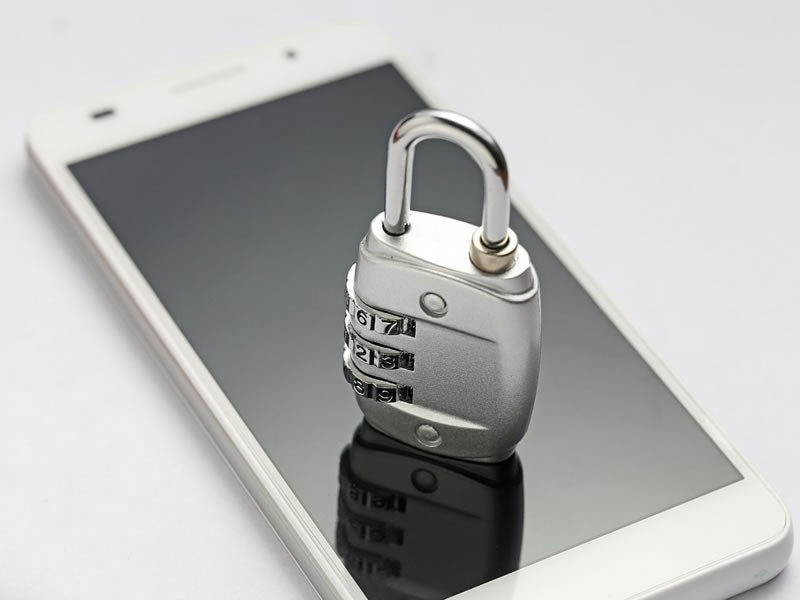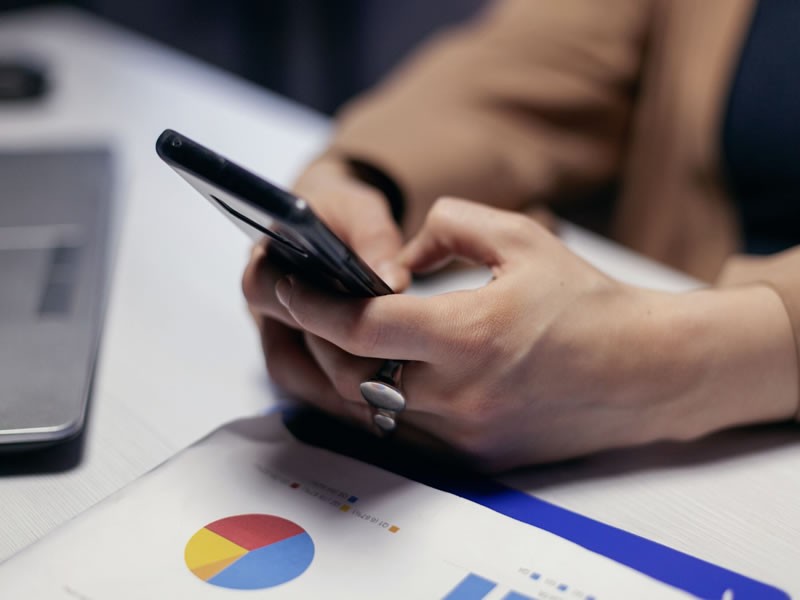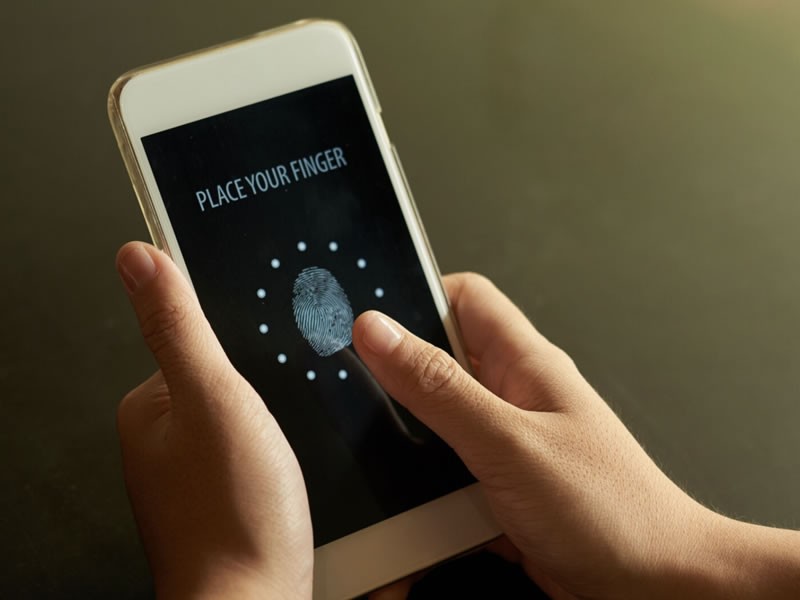Insight Blog
Agility’s perspectives on transforming the employee's experience throughout remote transformation using connected enterprise tools.
10 minutes reading time
(2089 words)
Data Privacy Best Practices: Mastering iPhone Maintenance in 2024
Explore effective strategies to safeguard your company's mobile device data, including solutions, regular updates, and more.
We live in a world in which mobile devices have become not just an everyday item, but a thing that has become so assimilаted with the owner's personality that it is an integral part of them and knows everything about them.
From this perspective, the data confidentiality and security of your iPhone play a critical role. Indeed, confidentiality solves not only privacy issues but also user security.
Along with the constant technological advancement, cyber threats are also becoming more sophisticated every day. That is why mastering iPhone maintenance is essential to creating security and ensuring data privacy. We are going to examine the best practices for maintaining data privacy so that you can effectively manage the security of your device.
Understanding the Importance of Mobile Device Data Security
In the contemporary digital landscape, the importance of ensuring mobile device data security cannot be overstated. As businesses increasingly rely on mobile devices for communication, productivity, and accessing critical information, the imperative to safeguard this data from malicious actors grows ever more urgent.
Mobile devices serve as repositories for a vast array of business-related information, encompassing everything from sensitive customer data to confidential financial records. This wealth of data renders mobile devices highly attractive targets for cybercriminals who seek to exploit vulnerabilities and gain unauthorized access.
Failing to adequately protect mobile device data can have severe ramifications for businesses. Potential consequences include financial losses, damage to reputation, and legal liabilities arising from data breaches. Therefore, it is imperative for companies to fully grasp the significance of mobile device data security and accord it the highest priority.
It's worth noting as technology evolves and cyber threats become increasingly sophisticated, businesses must continuously adapt their security measures to avoid potential risks. This entails implementing robust encryption protocols, regularly updating security software, and providing comprehensive employee training on cybersecurity best practices.
By adopting a proactive approach to mobile device data security, businesses can mitigate risks and safeguard their valuable assets, ensuring continued success and resilience in an ever-changing digital landscape.
The Risks of Unsecured Mobile Device Data
The risks linked with unprotected mobile device data are diverse and carry significant consequences. One primary concern is the threat of data breaches. When a mobile device falls into unauthorized hands, the risk of accessing sensitive information becomes too real. This could pave the way for identity theft, financial fraud, and cybercrimes.
Furthermore, the potential loss or theft of mobile devices poses another substantial risk. With the growing mobility of workforces, the likelihood of devices being misplaced or stolen has escalated. This situation could lead to unauthorized access to company data without adequate security measures if the device lacks proper protection.
Unsecured mobile devices can also leave businesses vulnerable to malware and other malicious attacks. Whether through phishing attempts or malware-infected applications, mobile devices can serve as susceptible entry points for cybercriminals aiming to exploit weaknesses in a company's network. This, in turn, may result in data loss, system compromise, and significant disruption to business operations.
Businesses must comprehend these risks and proactively address them. By implementing robust security protocols such as encryption, multi-factor authentication, and remote wipe capabilities, companies can effectively safeguard mobile device data and mitigate the potential fallout of a security breach.
Implementing Mobile Secruity Solutions
Implementing mobile security solutions is essential in today's interconnected world, where smartphones and tablets play a central role in both personal and professional activities. These solutions involve implementing measures to protect mobile devices from various security threats such as malware, data breaches, unauthorized access, and phishing attacks. Key strategies include:
- Deploying robust antivirus software.
- Enforcing strong password policies.
- Utilizing encryption for data storage and transmission.
- Implementing secure authentication mechanisms like biometrics or two-factor authentication.
- Regularly updating operating systems and applications to patch vulnerabilities.
Additionally, organizations may adopt mobile device management (MDM) solutions to remotely monitor, manage, and secure devices across their network. By prioritizing mobile security, businesses can safeguard sensitive information, maintain regulatory compliance, and mitigate the risks associated with mobile device usage.
To uphold data privacy best practices, several detailed measures can be implemented:
Follow us and access great exclusive content everyday: Follow us on Google News
Apple ID Security
Apple ID is a crucial security element for iPhone users, granting access to a wide array of systems and services. It is a unique identifier that enables users to sign in and manage their accounts across various Apple devices such as iPhone, iPad, Mac, or iPod Touch.
This identifier is pivotal in accessing iCloud accounts, where diverse personal data are stored securely. Consequently, users can synchronize their data across multiple devices and retrieve it from any location with an Internet connection.
Moreover, the Apple ID serves as a repository for payment information used during transactions within Apple's digital stores. This facilitates swift and convenient purchases without the need to input payment details repeatedly.
This identifier is pivotal in accessing iCloud accounts, where diverse personal data are stored securely. Consequently, users can synchronize their data across multiple devices and retrieve it from any location with an Internet connection.
Moreover, the Apple ID serves as a repository for payment information used during transactions within Apple's digital stores. This facilitates swift and convenient purchases without the need to input payment details repeatedly.
Furthermore, it enables users to activate features like Find My iPhone, allowing them to track down lost or stolen devices. Additionally, it empowers users to remotely erase data, lock the device, or send messages to the device's screen for added security measures.
How can we enhance the effectiveness of this security measure?
Crafting a Robust Password
- Crafting a Robust Password: Begin by dedicating ample time to formulate a robust and distinctive password for your Apple ID. Opt for a combination of uppercase and lowercase letters, numbers, and special characters to enhance its strength and resilience against unauthorized access. Remember, a strong password serves as the frontline defense for your account's security.
- Regular Password Updates: Instill a practice of periodically changing your Apple ID password. By doing so, you fortify your account's defenses, making it more challenging for potential attackers to breach your security measures. Regular password changes serve as a proactive approach in safeguarding your sensitive information, ensuring that even if a password is compromised, its usefulness is limited over time.
- Implement Two-Factor Authentication: Empower your Apple ID with the added layer of protection offered by two-factor authentication. By enabling this feature, you significantly heighten the security of your account. Even if malicious entities manage to obtain your password, they'll be thwarted from gaining unauthorized access without the secondary verification method. This extra step acts as a formidable barrier, bolstering your account's resilience against intrusion attempts
- Leverage iCloud Password Manager: Harness the capabilities of the integrated iCloud password manager. This tool serves as a valuable asset in your quest for enhanced security by assisting in the generation and storage of strong, unique passwords. By utilizing this feature, you mitigate the risks associated with using weak or repetitive passwords across various platforms, thereby fortifying your overall digital defense strategy. Additionally, the password manager simplifies the process of managing multiple passwords, ensuring that each account is secured with a unique and resilient passphrase.
Manage Cookies
An equally crucial part of keeping your iPhone data private is managing сookies - small files that store all the information about your online activities on your device. For this reason, understanding and knowing how to clear cookies on iPhone, turn off cookies on iPhone, or delete cookies on iPhone is essential for your peace of mind and the realization that you have not missed a single detail in ensuring the security of your personal data.
- To disable сookies in Safari, you should go to the settings and disable the necessary option, which will prevent cookies from being stored on your device.
- With the option Clear browsing history and data, you can delete all stored cookies and browsing history.
- When you use private browsing mode in Safari, you will automatically have cookies and browsing history disablеd when you close the tab.
- However, cookie management on iPhone is not limited to Safari. Chrome and Firefox also have their own security and privacy settings that allow you to manage cookies.
- There are also privacy managеment apps on the App Store that allow you to better control cookies and other aspects of tracking on your iPhone.
Free ebook: How To Get Your Intranet Off The Ground
Updating Software
Another essential privacy practice is to keep your iPhone software up to date. Apple regularly releases new versions of iOS with fixes for vulnerabilities that can be used by attackers to hack or unаuthorized access to your data. Therefore, it is important to always have the latest version of the operating system.
New versions of iOS often include improved compatibility with new apps and services. Having the latest version of the operating system gives you access to new features and services that can not only improve your user experience but also provide greater security.
App Installations from Trusted Sources and Restrict Access
- Before installing any app, make sure that it is downloaded from a trusted source. Such as the official App Store.
- Some apps downloaded from other sources may contain malicious code that can damage your device or steal your data.
Using the Apps feature in iPhone settings will allow you to control their access to your contacts, location, personal photos, and other private data. Carefully configure these permissions for each app to avoid unauthorized access to your personal information.
Virtual Private Network
Utilizing a virtual private network (VPN) enables users to encrypt their internet connections, thus safeguarding their data from interception. Additionally, it offers various supplementary advantages.
Employing a VPN incorporates an extra layer of security into your internet connectivity. This is achieved by encrypting all data transmissions between your device and a remote server.
Furthermore, many service providers and third-party entities track users' online activities to gather data for advertising or analytical purposes. By utilizing a VPN, you mitigate the risk of surveillance, as your traffic is encrypted, thwarting potential spying attempts.
Moreover, certain countries or networks may impose restrictions on accessing specific websites. Consequently, a VPN renders your internet connection anonymous, enabling access to blocked resources while preserving your privacy.
Backup Encryption
Make sure your iPhone backups are encrypted to protect sensitive information.
In iTunes or iCloud, you can set a password to encrypt your backups. This provides an extra layer of protection because you can't access your backups without entering the correct password.
If your device is damaged or lost, you can restore your data from an encrypted backup using the correct password. This will help you securely restore your data without the risk of leaking confidential information.
Backup encryption may be important to meet regulatory requirements for the protection of personal data. Among them for example are the Health Insurance Portability and Accountability Act (HIPAA) in the United States and General Data Protection Regulation (GDPR) in the European Union. Using encryption can help you meet these data security standards.
Wi-Fi Security Precautions and Оther Security Measures
- Avoid sending private, sensitive data over open Wi-Fi networks. These can include coffee shops, airports, etc. These networks can be dangerous because they are easy targets for attackers and it is not difficult for attackers to intercept data sent in this way.
- Besides data interception, attacks can include the creation of fake access points or MITM (man-in-the-middle). This allows attackers to interfere with your communication.
- Make sure you use secure websites with HTTPS protocol.
- Moreover, carefully monitor the reliability of the network before connecting, avoiding using those with similar names to familiar locations or services.
- Using your hotspot or enabling personal hotspot access on your smartphone can be a safer alternative. Especially if you need access to the Internet for important transactions.
To keep your iPhone data confidential requires total vigilance and the use of security best practices. The Apple ID plays a key role in accessing a variety of Apple features and services. So, taking steps to keep it secure is a priority and well worth the time. Keeping your deviсe's software up to date is not only important to ensure your device's performance and compatibility with new services, but also a good practice to keep your data private. Encrуpting your iPhone backups is also an important element of mаintaining the privacy and security of your personal information.
So, by following all of the above recommendations, you will create security for your personal data. As a result, you can enjoy your іPhone without fear of becoming an easy target for attackers.
Categories
Blog
(2726)
Business Management
(333)
Employee Engagement
(213)
Digital Transformation
(185)
Growth
(124)
Intranets
(121)
Remote Work
(61)
Sales
(48)
Collaboration
(43)
Culture
(29)
Project management
(29)
Customer Experience
(26)
Knowledge Management
(21)
Leadership
(20)
Comparisons
(8)
News
(1)
Ready to learn more? 👍
One platform to optimize, manage and track all of your teams. Your new digital workplace is a click away. 🚀
Free for 14 days, no credit card required.














